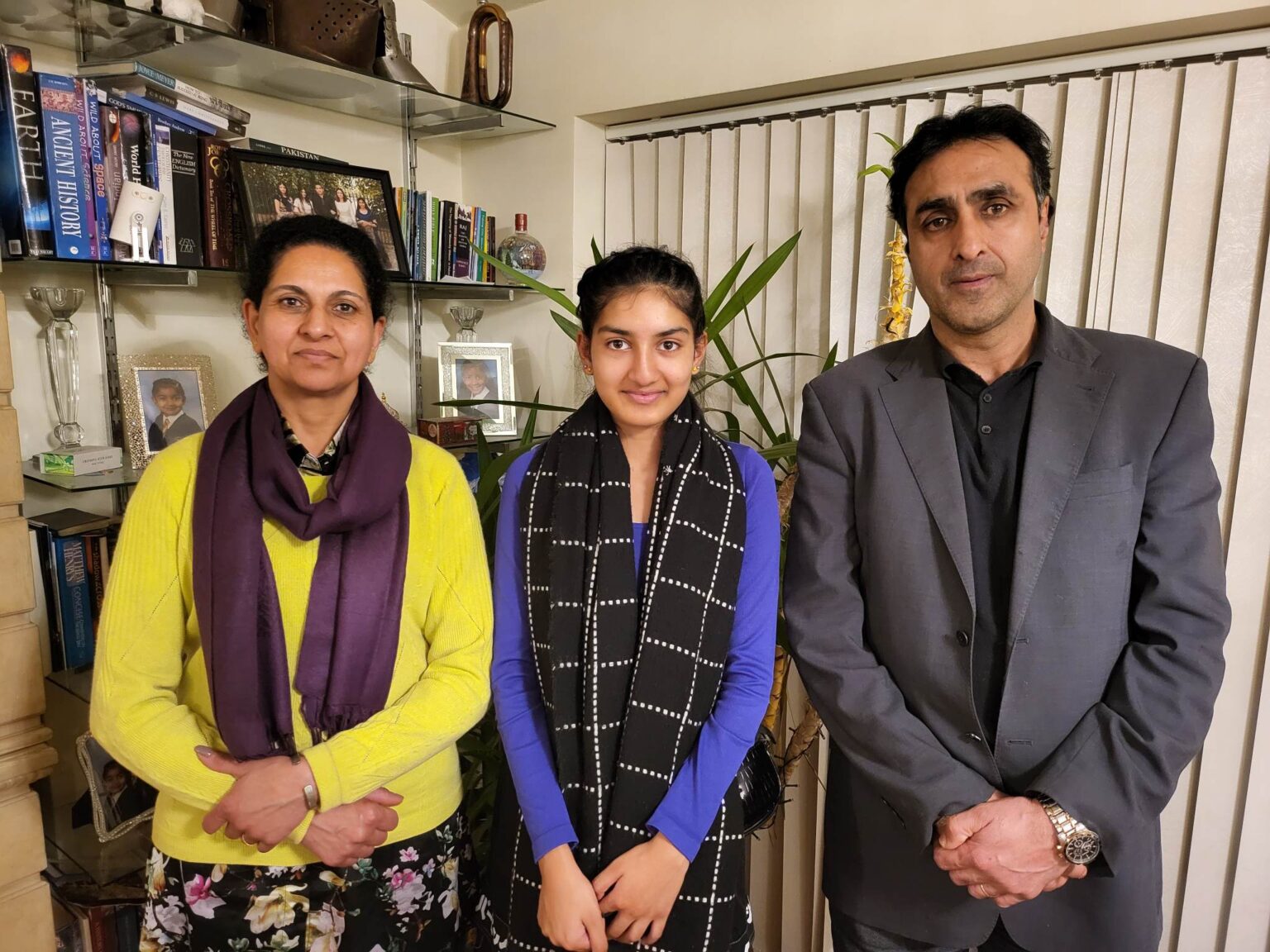New statutory guidance on the recording of so-called non-crime hate incidents will ensure police prioritise freedom of expression, the Home Secretary has announced.
Under a new draft code of practice laid before Parliament today, the police will only record non-crime hate incidents when it is absolutely necessary and proportionate and not simply because someone is offended. The measure will better protect people’s fundamental right to freedom of expression as well as their personal data.
The draft code follows concerns around police involvement in reports of ‘hate incidents’ which are trivial or irrational and do not amount to a criminal offence.
The code has been released in the wake of the suspension from school of 4 children who were accused of desecrating the Koran and subjected to death threats from outraged Muslims. Read more (here).
Pak-Christian Teenager Naomi Chowdhry, condemned the treatment of the boys and their mothers by religious fanatics, the police and awkward messages being made by the school leadership. Read more (here).
The mother of one on the children whose son has ‘high-level autism, was videoed giving an apology to a mosque full of men, for the behaviour of her child. The alarming scene was shared by Islamic groups on Tick Tok which must have been difficult for the family. We share the link so that people can share their thoughts on this action in support of the family (click here).
Home Secretary Suella Braverman, spoke about the new code, she said:
“I have been deeply concerned about reports of the police wrongly getting involved in lawful debate in this country.
“We have been clear that in recording so called non-crime hate incidents, officers must always have freedom of expression at the forefront of their minds.
“The new code will ensure the police are prioritising their efforts where it’s really needed and focusing on tackling serious crimes such as burglary, violent offences, rape and other sexual offences.”
The draft code introduces new safeguards to ensure that personal data may only be included in a non-crime hate incident record if the event is clearly motivated by intentional hostility and where there is a real risk of escalation causing significant harm or a criminal offence.
It addresses concerns that those who express views which some consider offensive, but are not against the law, are at risk of becoming the subject of a non-crime hate incident report, and that this may result in their personal data being stored on a policing record.
Minister for Crime, Policing and Fire, Chris Philp said:
“We are committed to supporting the police to fulfil their vital role of keeping the public safe, including tackling the scourge of hate crime.
“Their focus must remain on catching dangerous criminals and bringing them to justice.
“That’s why we’re taking action to ensure a clear threshold must be met in order for incidents of this type to be recorded.
“The code will better protect people’s fundamental right to freedom of expression as well as their personal data, while continuing to ensure vulnerable groups are appropriately safeguarded.
“It also provides detailed guidance on freedom of expression, and clear case studies to illustrate how this fundamental right should be considered by the police.”
Chief Constable Stephen Watson of Greater Manchester Police said:
“Crimes that are motivated by hate cause great distress for the victims, many of whom can be both marginalised and vulnerable.
“It is right and proper therefore that the perpetrators of hate crime are dealt with robustly and prosecuted in line with the well-defined legal provisions which are specifically designed to safeguard the interests of the victim.
“The duty of the police in these cases, as with all incidents of criminal offending, is to do our outmost part in ensuring that justice is properly served.”
“It is not automatically unlawful to say or do things which can be unpleasant, hurtful, distasteful or offensive.
“This guidance is replete with sensible provisions to safeguard victims of hate crime and better distinguishes between that which should involve the police and that which, in a free country, should emphatically not. It gives effect to what the public actually expect the police to do.
“I support the new code of practice and consider the revised guidance to be fair, timely and welcome.”
The new code is welcomed by the British Asian Christian Association, as it safeguards the interests of evangelists, Pastors and others who may have a view that is not always widely accepted, but is not designed to create animosity and polarization.
We still expect Police to recognize with more care actual malicious communications, and their impact on communities when targeted. When we weigh the concerns of a recent tick tock message in which an Islamist informs Christians and the people of England that he will urinate on a Bible in a public place, then challenges them to stop him (click here). Against the juvenile actions of some year 10 students who damaged a Koran without malicious intent and then received death threats, it seems ludicrous that police questioned the boys, and failed to act against the menacing potential executioners.
A book can be replaced. The Koran may not have been treated with the same care and respect that Muslims wanted but these boys are not adherents to the Islamic faith and have no legal obligation to honour the text. Even then the school head-teacher suspended the four children for not respecting the Koran, an act which for many seems unfair. We question why police after all that felt that it was more important to interview the children, rather then stopping the ‘sharia-court’ like meeting at which a mother had to make herself vulnerable.
Juliet Chowdhry, Trustee for British Asian Christian Association, said:
“This new code removes the potential for attacks on innocent people who may not have the same view on varied socio-political norms or agendas.
“We are all individual people and our views will not always align and more often than not will grate with someone, but that is not necessarily a crime or something which police need to be involved with.
“The police should not be used as a tool to exert influence over others, they are here to protect and to serve, and most do a wonderful job of it.
“I’m glad that a common-sense policy has come of the Wakefield incident, those children and their families have suffered enough from an over-exaggerated concern over horseplay.
“We cannot expect people to respect our religions and faiths unless we ourselves act as arbiters of peace and good will.”
Naomi Chowdhry, a concerned teenager, said:
“This is great news!
“I just hope this new code prevents young people like me from being caught up in messy situations with the police, based on personal offence.
“I want to live in a free society where people can have opposing views but have the calm and tolerance to accept differences.
“When God created the earth he made it for all people, not just Christians, or Muslims or adherents to other faiths.
“Thank God for common sense!”
Nissar Hussain is an Ex-Muslim who had to be rescued by British Asian Christian Association, in 2016 (click here). He has joined British Asian Christian Association, on many of our campaigns to protect former Muslims in Britain (click here). spoke with BACA about the new code. He said:
“As victims of Sharia-enforcement in Britain, my family and I sympathise with the children threatened by Islamic law enforcing criminals.
“This is unacceptable behaviour, but is unfortunately very common and has never been dealt with by the authorities with the seriousness it deserves.
“For decades my family faced constant threats because I had chosen to leave Islam, a capital crime under Sharia law.
“But I was born in Birmingham, not a village in Pakistan and I lived in Bradford.
“That didn’t matter to those who nearly beat me to death outside my home, and a year later in 2016 threatened my life once more, so the Police escorted my family and I from our home.
“We have lived in hiding ever since and there are many like us around Britain, living secret lives as internal refugees.
“All this is because in the past the authorities failed to deal with the killers and terrorists who attacked my children, and now these unfortunate school children too.
“It is only with an honest understanding of the threat that the Sharia and its advocates represent, and stern action addressing them will this be resolved.
“The recent guidance is a step in the right direction, but it is only the start.
“Mrs Braverman is to be commended for her approach and we look forward to an even stronger defence of British values in the weeks and months ahead.
“There can be no retreat by the authorities, or there will many more such incidents in the future, all sowing further division and hatred between communities across this once Great Britain.”


